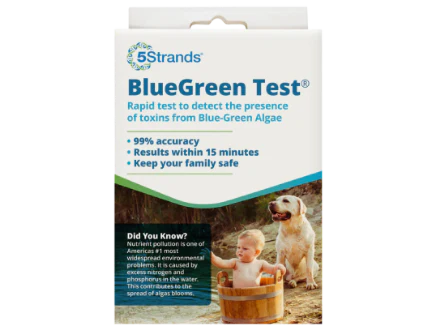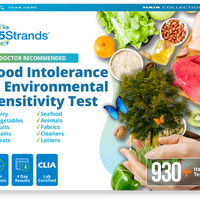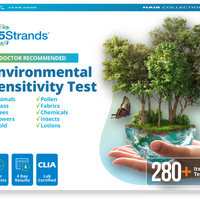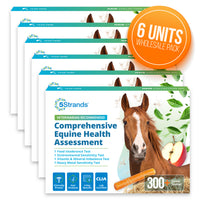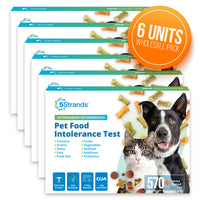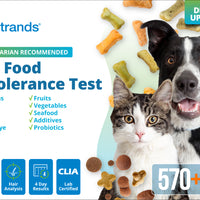If you’re worried about your dog’s gut health, you’re not alone. I’ve noticed an increase in dogs experiencing gut health problems over the past few years. It can be challenging for dog parents to figure out why their canine’s gut imbalance symptoms began and how to resolve the issues.
A poor diet, environmental factors, or underlying health conditions can lead to inflammation and digestive imbalance, causing a dog’s gut problems. You can help restore your pup’s gut health naturally, without the risks of medications and their side effects. In this article, I have compiled a list of proven ways to rebalance your dog’s gut microbiome and improve their health naturally.
How do gut health problems manifest in dogs?
Just like us humans, the path to your dog’s health is through a balanced gut microbiome. I wish I had known this when I got my first pup many years ago. Your dog’s poor gut health can affect their entire body and mental well-being. Dog owners often rush to the vet’s office with questions about their pets’ health issues, wondering what’s causing their pets’ symptoms.
Gut health problems in your dog can appear as diarrhea, constipation, vomiting, weight fluctuations, low energy, skin issues, and behavioral disorders.
If you’re seeing signs of digestive problems and other health issues in your dog and are concerned about their well-being, you’re in the right place. I’ve put together a list of seven proven and natural ways to help restore your dog’s gut microbiome.
Proven Strategies for a Dog’s Balanced Microbiome
1. Keep your dog hydrated
Hydration is vital to a dog’s gut health because it helps with nutrient absorption and the proper functioning of the digestive process. Good hydration is just a great way to help your furry friend improve and maintain their overall health. Give your pet plenty of water regularly and provide them with water-rich foods, and offer them plenty of water at home and when they are out, especially during the summer months.
2. Feed them a fresh, whole food diet
The food you feed your dog affects their gut and overall health. If you’ve been feeding your dog processed food for some time, it may be time to consider switching their diet to fresh and wholesome ingredients. Essentially, offer your pooch friend foods derived from natural, whole food sources, rich in fiber, that contain all the essential vitamins and nutrients. In my experience, I know this can be more time-consuming, but replacing at least some commercial food with a home-cooked diet is a step in the right direction. Just like humans, a dog’s gut health will improve when you include quality nutrition in their daily diet.
3. Test for food and environmental intolerances
Another way to discover your dog’s gut health imbalance is by testing your pet for food and environmental intolerances. Many dogs experience health and behavioral problems because of an intolerance to certain foods or environmental triggers. A 5Strands Pet Food Intolerance Test can help determine whether you need to eliminate certain foods from your dog’s diet that they can’t properly digest, and that might cause gut inflammation and other health issues.
If you think your dog is reacting to something in the environment, the 5Strands Environmental Intolerance Test can help identify food and environmental triggers, such as pollen, grasses, animal dander, and cleaning agents, that may be present around your home. Managing environmental intolerances is crucial in restoring your pet’s gut health.
4. Give them prebiotics and probiotics
Your pet’s gut health can significantly benefit from getting dog prebiotic and probiotic foods. Prebiotics can nourish your dog’s natural gut flora composition and help maintain a dog’s microbiome in a healthy and balanced state.
I came across a study reporting that probiotics are beneficial in promoting health and preventing disease in dogs by helping to increase the "friendly" bacteria in the gut. This supports nutrient absorption and improves digestive function. Using prebiotics and probiotics at the right times and in the right amounts can also improve your dog’s gut and strengthen their immune system.
5. Avoid unnecessary vaccines and antibiotics
If the health of your canine is a priority, avoid overusing vaccines and antibiotics. If you’re concerned about over-vaccination, talk to your veterinarian for the best options. Overuse of antibiotics is also another concern for many pet owners. Antibiotics wipe out “friendly” and “unfriendly” gut bacteria, leading to disruption of a dog’s microbiome ecosystem. When antibiotics are necessary, consider giving them probiotics to help maintain the healthy bacteria in their gut.
6. Help decrease stress
Stress affects dogs in similar ways to humans. I’ve seen dogs tremble from loud noises outside or when left alone at home. I once had a dog who kept biting his tail until I discovered this was due to stress. When your dog is under constant stress and feels anxious, you will notice the impact on their digestive and behavioral health.
To reduce stress, take your dog for walks, create a safe and calm environment, play games that engage both their brains and bodies, massage them, and ensure a balanced lifestyle. Consult a veterinarian or behaviorist to help with techniques such as systematic desensitization, which can help your dog learn to associate anxiety-provoking sources with positive emotions.
7. Provide regular exercise
Regular exercise can help improve your pooch’s gut microbiome by increasing the diversity in their gut. Depending on their age, breed, and health status, you can incorporate various fun outdoor activities, including daily walks with some variation, fetch and chase games, swimming, and even getting them involved in canine sports, if appropriate.
As an active outdoor enthusiast, I’ve incorporated activities that involve taking my dog for a run, going on hikes, or simply taking regular evening walks. An active dog is more likely to be physically and mentally healthy.
To Conclude
If you’ve been concerned about your dog’s gut health and its impact on their overall well-being, know that it’s possible to help your canine balance their gut microbiome. While it may be tricky at first to identify the root of the health problems, taking the right approach and implementing the natural and proven steps I mentioned in this post can help your animal friend recover their health. Testing your dog for food and environmental intolerances is important, as is feeding them a fiber-rich and natural whole food diet, and encouraging a balanced lifestyle. Remember that action can be the difference between your dog’s healthy and imbalanced gut.



